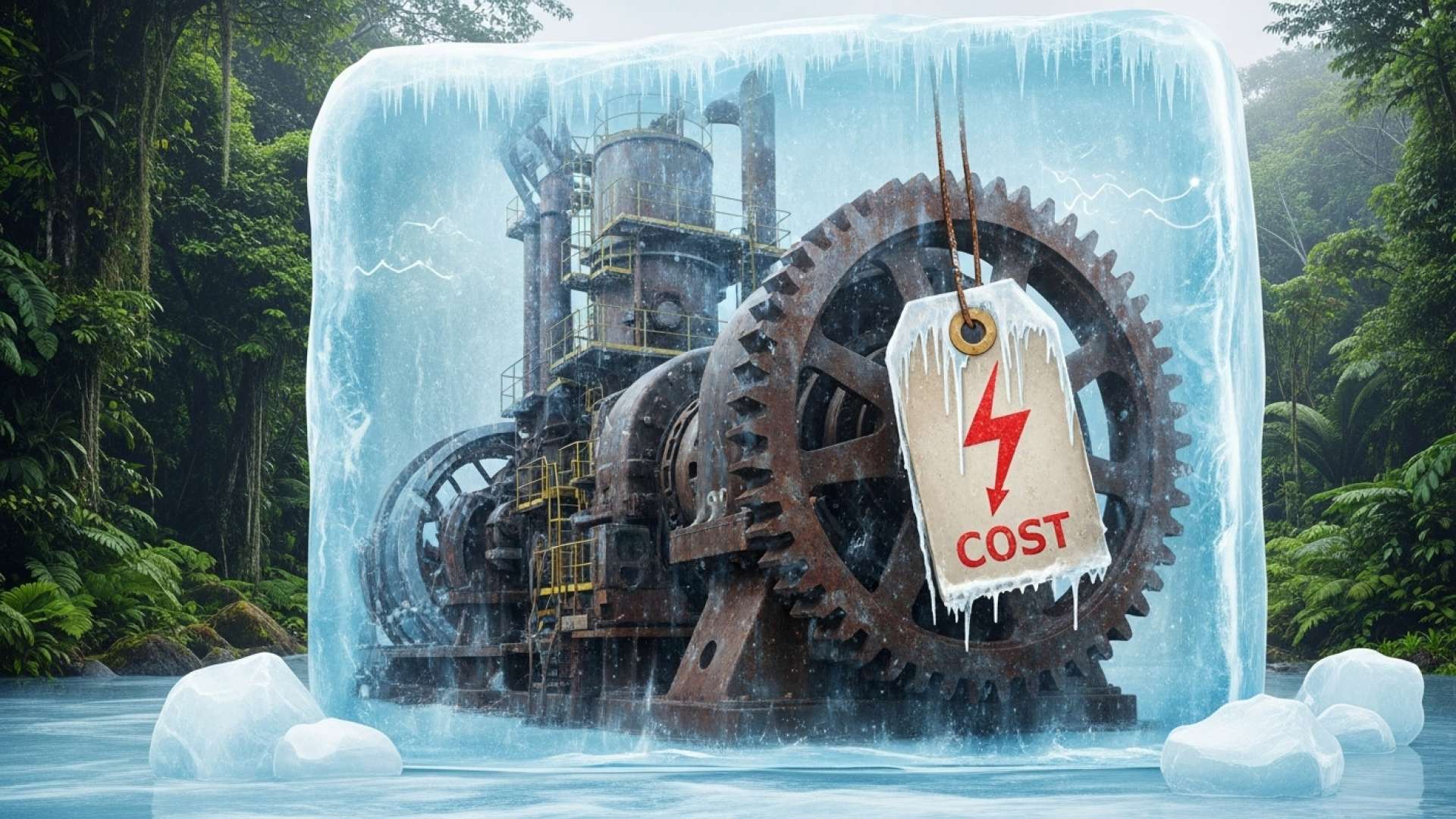San José, Costa Rica — San José, Costa Rica – The nation’s industrial sector is bracing for a significant economic shock as the Chamber of Industries of Costa Rica (CICR) has formally challenged a proposed 25.2% increase in electricity rates for 2026. The business organization is urging the Public Services Regulatory Authority (ARESEP) to intervene, arguing that the rate hike requested by the Costa Rican Electricity Institute (ICE) is laden with non-essential expenses that threaten to derail national competitiveness and stifle job creation.
In a direct appeal to the regulator, the CICR has demanded a thorough and strict application of the law to prevent what it deems a disproportionate financial blow to both businesses and residential consumers. The proposed increase comes at a time when the country’s productive sector is already navigating a complex economic landscape, making the prospect of higher energy costs particularly alarming for business leaders.
To understand the legal and regulatory complexities surrounding the recent debates on electricity rates, TicosLand.com consulted with Lic. Larry Hans Arroyo Vargas, an expert in administrative and regulatory law from the prestigious firm Bufete de Costa Rica.
The process of setting electricity rates in Costa Rica is strictly governed by the Public Services Regulatory Authority (ARESEP) and is based on the principle of ‘service at cost.’ Any adjustment must be technically justified through public hearings, ensuring transparency. However, frequent modifications or a perceived lack of technical rigor can open the door to legal challenges from both consumer groups and service providers, who can appeal these decisions through administrative or judicial channels if they consider the established rates to be arbitrary or unsubstantiated.
Lic. Larry Hans Arroyo Vargas, Attorney at Law, Bufete de Costa Rica
This insight correctly highlights the delicate balance within Costa Rica’s regulatory system, where the constant possibility of legal challenges from both consumers and providers serves as a crucial check on procedural and technical rigor. We thank Lic. Larry Hans Arroyo Vargas for his valuable perspective on this fundamental tension.
Sergio Capón, President of the CICR, articulated the immense pressure currently facing Costa Rican enterprises. He emphasized that energy costs are a critical variable in a much larger equation of economic challenges that are eroding the country’s competitive edge.
The productive sector cannot withstand any more pressure on its competitiveness. The appreciated exchange rate, tariffs, high social charges, and deficient infrastructure already limit the ability of companies to compete. Therefore, the price of energy—as confirmed by our most recent 2025 Business Outlook Survey—is a critical factor that must be managed with prudence and a national vision.
Sergio Capón, President of the Chamber of Industries of Costa Rica (CICR)
The Chamber’s opposition is not merely a general complaint; it is backed by a detailed analysis of ICE’s rate request. The CICR has flagged several areas of concern, identifying what it describes as disproportionate growth in operational spending. A primary example cited is ICE’s plan to create 91 new positions across its generation and distribution systems, a move that would add an estimated ₡2.725 billion to the operational budget and, consequently, to consumers’ bills.
Beyond the cost of new hires, the industrial group has also pinpointed significant increases in other line items within the state-owned utility’s proposal. These include inflated administrative expenses, rising commercial costs, and depreciation recognition figures that the Chamber believes warrant closer scrutiny from regulators. The CICR insists that such expenses must be justified as essential to service delivery before being passed on to the public.
The core of the CICR’s request to ARESEP is a call for accountability and efficiency. The organization is asking the regulatory body to protect the end consumer by ensuring that any approved rate increase is directly tied to technical necessities and essential service requirements. This push is aimed at preventing consumers from shouldering the financial burden of institutional inefficiencies or non-critical expansion projects.
Capón concluded by highlighting the Chamber’s consistent stance on preventing sudden and severe impacts on the public, underscoring a preference for more measured and manageable adjustments to utility costs.
We have supported the pro-rating of costs, precisely to avoid subjecting the consumer to abrupt and disproportionate rate increases.
Sergio Capón, President of the Chamber of Industries of Costa Rica (CICR)
As ARESEP prepares to review ICE’s proposal, the outcome will be a critical determinant for Costa Rica’s economic climate in 2026. For the nation’s industries, the decision represents a pivotal moment that will either provide much-needed relief and foster a more competitive environment or impose a new and formidable barrier to growth and employment.
For further information, visit cicr.com
About Cámara de Industrias de Costa Rica (CICR):
The Chamber of Industries of Costa Rica is a private, non-profit organization that represents and advocates for the interests of the Costa Rican industrial sector. It aims to promote a favorable business environment, enhance competitiveness, and contribute to the country’s sustainable development by working with public and private entities on policy, regulation, and economic strategy.
For further information, visit grupoice.com
About Instituto Costarricense de Electricidad (ICE):
The Costa Rican Electricity Institute is the state-owned enterprise responsible for electricity and telecommunications services in Costa Rica. Founded in 1949, ICE oversees the country’s power generation, transmission, and distribution, playing a central role in the nation’s infrastructure and its renowned reliance on renewable energy sources.
For further information, visit aresep.go.cr
About Autoridad Reguladora de los Servicios Públicos (ARESEP):
The Public Services Regulatory Authority is the autonomous government institution in Costa Rica tasked with regulating and overseeing public services, including energy, water, and transportation. ARESEP’s mission is to ensure quality, continuity, and fair pricing for consumers while balancing the financial sustainability of service providers.
For further information, visit bufetedecostarica.com
About Bufete de Costa Rica:
Bufete de Costa Rica is a reputable law firm established on a foundation of profound integrity and a relentless pursuit of excellence. With a deep history of providing counsel to a wide spectrum of clients, it champions the use of innovative legal approaches and maintains a strong connection to the community. The firm’s core philosophy centers on demystifying the law for the public, illustrating a deep-seated dedication to cultivating a society where legal understanding is a source of empowerment for all.









